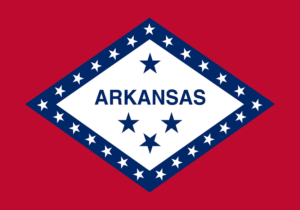Ark. R. Civ. P. 38
Reporter’s Notes to Rule 38:
1. As does FRCP 38, this rule recognizes the constitutional right to trial by jury. Rule 38 does, however, extend the period of time within which a party must request a jury trial. Under FRCP 38, the demand for jury trial must be made not later than 10 days after service of the last pleading directed to the issue subject to jury trial. Under this rule, demand for trial by jury may be made at any time up to 20 days prior to trial. Under prior Arkansas law, the time for demanding a jury trial was governed by Rule 4(c) of the Uniform Rules for Circuit and Chancery Courts. That rule permitted the trial court to determine whether any of the parties desired a trial by jury. Unless one of the parties affirmatively requested a jury trial within 10 days after being contacted by the court, the right was waived, provided, of course, that no prior demand for jury trial had been made. Thus, a party normally had until just prior to trial to request a jury trial and this procedure has seemingly worked well. For this reason, the Committee did not see the need to fix an earlier time by which demand for jury trial has to be made.
2. Since Rule 18(a) permits the joinder of legal and equitable claims, problems could arise when equitable issues are resolved in circuit court; however, Rule 18(b) permits the trial court to make such orders respecting severance and transfer as may be appropriate and this should cure most potential problems. There may be instances, however, where a circuit judge might be called upon to decide equitable issues in a case where a jury is sitting. In those instances, the court should follow the federal practice of having the jury resolve the legal issues with the court itself resolving the equitable issues. Wright & Miller, Federal Practice and Procedure, Sections 2305 and 2306.
3. Under the Federal Rule, demand for a trial by jury is served upon opposing counsel. Under this rule, the demand or request for the jury is filed with the court clerk. The purpose of this provision is to ensure that the court itself and its administrators will promptly know if a jury is requested.
Addition to Reporter’s Notes, 2001: Article 2, Section 7 of the Constitution of 1874 provides, in part, that “[t]he right of trial by jury shall remain inviolate, and shall extend to all cases at law, without regard to the amount in controversy….” Rule 38 sets out the procedure for asserting the right to a jury trial.
Constitutional Amendment 80, which merged courts of law and equity, did not repeal or modify Article 2, Section 7. As a result of the merger, however, the Supreme Court will be required to determine the parameters of the right to trial by jury in the new system. The possible impact is most clearly seen in cases involving legal issues formerly decided in chancery court under the cleanup doctrine. In this situation, the Supreme Court held that a litigant was not deprived of his or her right to trial by jury because that right is limited to cases that would have been decided “at law” in 1874. By virtue of the cleanup doctrine, which was well-established by 1874, legal issues could be decided by the chancellor without a jury. Colclasure v. Kansas City Life Ins. Co., 290 Ark. 585, 720 S.W.2d 916 (1986).
In a merged system, the question is whether Article 2, Section 7 requires trial by jury with respect to legal issues which, prior to merger, would have been heard in chancery under the cleanup doctrine. Faced with this question after the merger of law and equity in the federal courts, the U.S. Supreme Court held that in a case involving both legal and equitable issues, the former will ordinarily be tried first to the jury in order to avoid the preclusive effect of an initial decision by the court on the equitable issues. See Dairy Queen, Inc. v. Wood, 369 U.S. 469 (1962); Beacon Theatres v. Westover, 359 U.S. 500 (1958). Federal cases on this point are not binding, because the right to jury trial in state court is governed not by the Seventh Amendment but by state law. Gasperini v. Center for Humanities, Inc., 518 U.S. 415 (1996); Colclasure v. Kansas City Life Ins. Co., supra.

